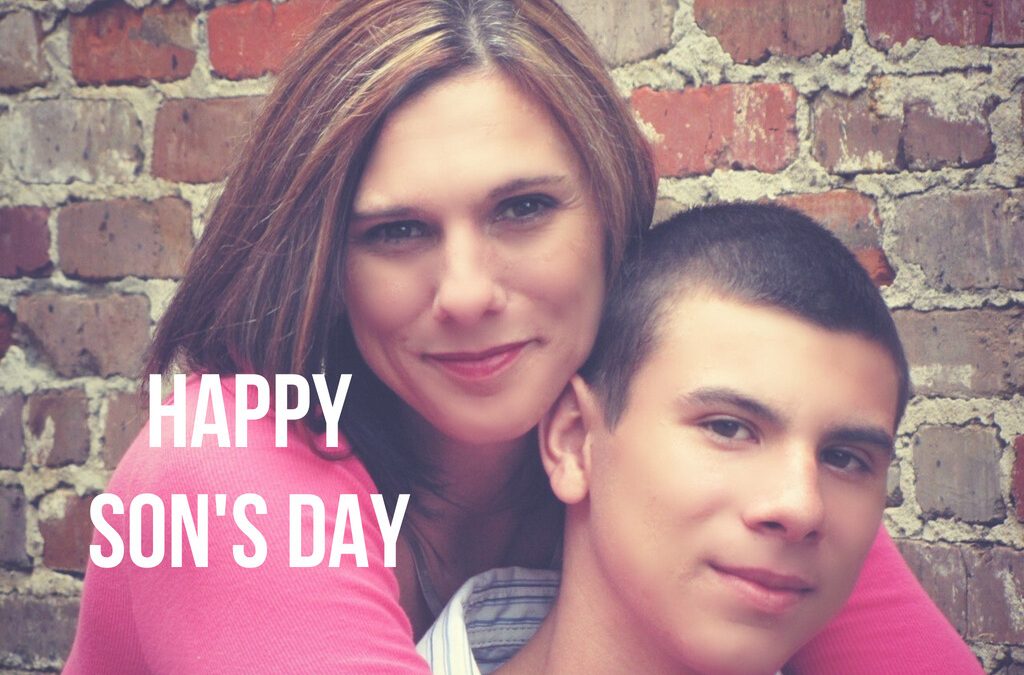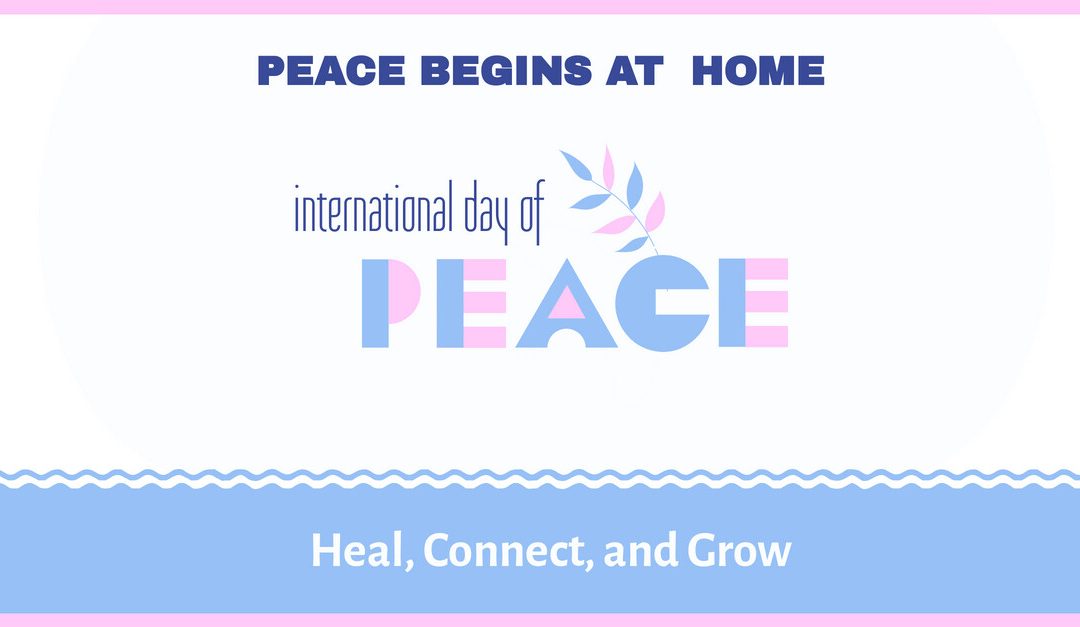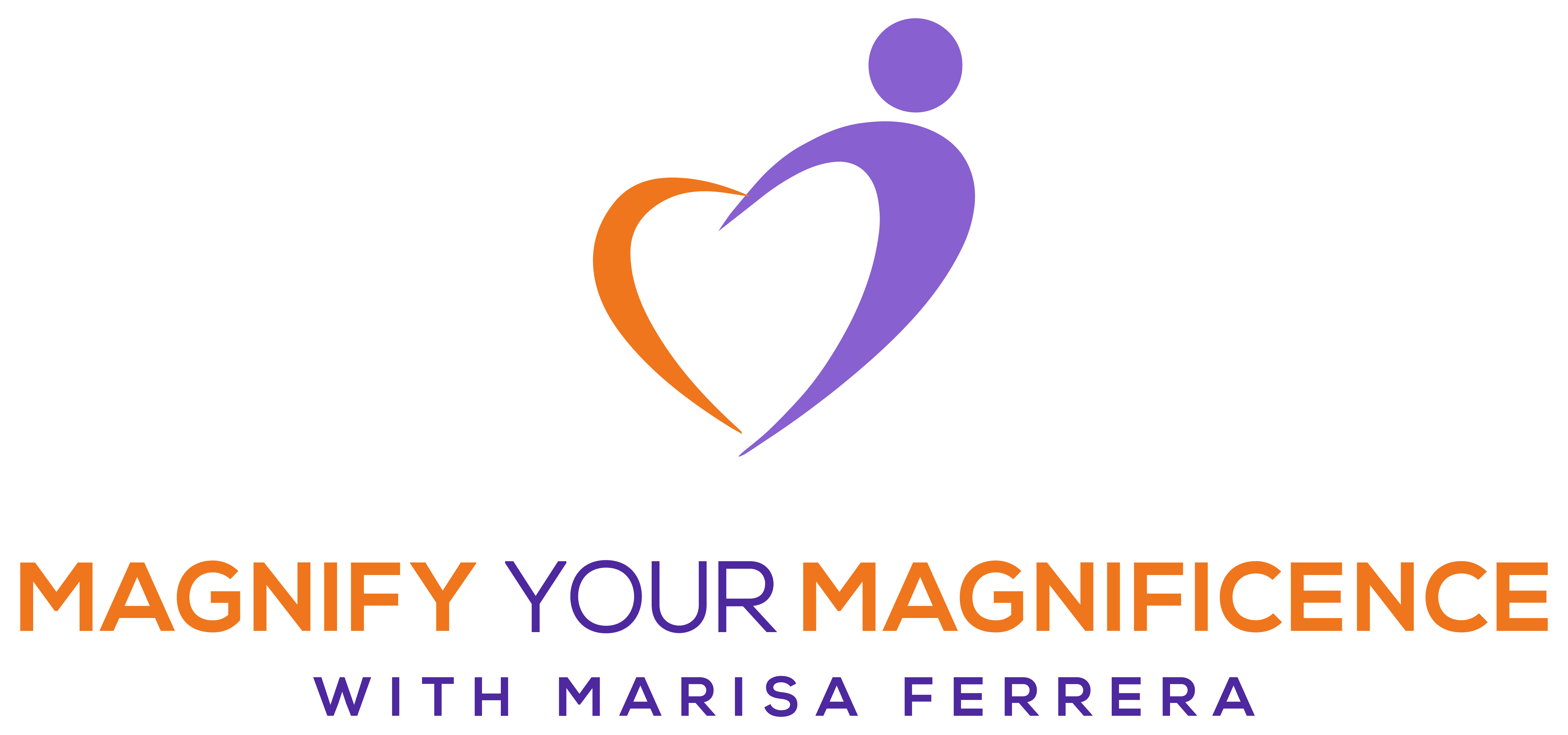
by Marisa Ferrera | Mar 8, 2025 | Relationships, Special Days
Women’s Day is a time to celebrate the beauty, strength, and resilience of women worldwide. It’s a day to honor how far we’ve come, the wisdom we carry, and the powerful ways we contribute to the world. But amidst the celebrations, I want to invite you to take a step inward—to reflect on the relationships you have with the women in your life and ask yourself, Is there healing that needs to take place?
As women, we have the capacity to nurture and uplift one another, yet too often, unresolved wounds create barriers between us. Whether it’s tension with your mother, unresolved conflict with a sister, or lingering resentment toward a friend, holding onto anger, judgment, or resentment only keeps us stuck. Today, I encourage you to open your heart to the possibility of releasing these burdens and embracing deeper connection and peace.
The Power of Letting Go
Letting go does not mean condoning hurtful behaviour or pretending past pain didn’t happen. It means choosing to free yourself from the weight of anger and judgment so you can experience more love, peace, and joy. When we hold onto resentment, we are the ones who suffer most. It drains our energy and keeps us trapped in the past.
Forgiveness is not about the other person; it’s about YOU. It’s about reclaiming your power and choosing to no longer let past wounds dictate your present and future. It’s about softening your heart while still honoring your boundaries and self-worth.
A Gentle Path to Healing
Healing relationships, especially those with our mothers, daughters, sisters, or close female friends, can feel overwhelming. But you don’t have to do it all at once. Here are a few steps to guide you:
1. Acknowledge Your Feelings Without Judgment
Give yourself permission to feel whatever is there—hurt, sadness, frustration. Recognizing and validating your emotions is the first step toward healing.
2. Shift Your Perspective
Ask yourself: What might have led this person to act the way they did? While understanding doesn’t excuse hurtful behaviour, it can help you release some of the pain attached to it.
3. Choose Compassion Over Judgment
Every woman carries her own wounds, struggles, and fears. When we replace judgment with compassion, we open the door to understanding and, possibly, reconciliation. Give yourself permission to feel whatever is there—hurt, sadness, frustration. Recognizing and validating your emotions is the first step toward healing.
4. Practice Letting Go Daily
Letting go is a process, not a one-time decision. Each day, choose to release a little more—through journaling, meditation, prayer, or simply setting an intention to send love rather than resentment.
5. Create Space for a New Beginning
If and when it feels right, consider extending a small gesture of kindness toward the woman you’ve struggled with. It might be a simple message, a heartfelt conversation, or even just holding her in your thoughts with love.
The Ripple Effect of Healing
When we choose to heal our relationships with other women, we create a ripple effect. We break cycles of pain and replace them with understanding and love. We set an example for younger generations, teaching them that women are not each other’s rivals but each other’s greatest allies.
This Women’s Day, I invite you to take a step toward releasing judgment, resentment, and anger. Open your heart to the possibility of healing. You deserve to experience the freedom, joy, and love that come from letting go.
Let’s rise together, not just as individuals but as a collective sisterhood, lifting each other up in love and grace.
If you’re struggling with letting go of judgment, anger, or resentment and would like support on your healing journey, I invite you to book a complimentary call with me. Together, we can explore how I might be able to help you move forward with more peace and love. Click here to schedule your free session.

by Marisa Ferrera | Feb 13, 2025 | Relationships, Special Days
Valentine’s Day tends to focus on romantic love, but at its core, it’s about all forms of love—including the deep connections we share with family. What if we carried the spirit of Valentine’s Day into every single day? By nurturing our relationships, practicing open communication, and creating healthy, loving boundaries, we can create a family environment filled with warmth and understanding long after February 14th has passed.
Tips to Help you Strengthen your Family Connections
1. Show Love in the Little Things
Love isn’t just about saying “I love you”—it’s about everyday gestures that show you care. Acknowledge your family’s efforts, express gratitude, and offer words of encouragement. Small things, like a warm hug, a thoughtful note, or simply putting your phone down and listening, can make a huge difference in strengthening your bond. Love is also about consistency—showing up for people when they need you, celebrating their wins, and being a source of support in tough times. Sometimes, it’s as simple as checking in with a quick text or making their favorite meal just because.
2. Make Time for Each Other
Life gets busy, and it’s easy to take family relationships for granted. Make a conscious effort to carve out quality time—whether it’s a weekly dinner, a shared activity, or just a walk together. What matters most isn’t the activity itself, but being fully present in the moment. If you live far from family, schedule regular phone or video calls to stay connected. It’s not about grand gestures; rather, it’s the little things that build meaningful relationships over time. Even a five-minute check-in or a handwritten letter can make someone feel cherished.
3. Practice Compassion and Forgiveness
No family is perfect, and disagreements are inevitable. Instead of holding onto resentment, see conflict as an opportunity to grow and heal. When tensions arise, listen with an open heart, express your feelings calmly, and focus on understanding rather than winning. Put yourself in the other person’s shoes—everyone has their struggles, and sometimes a little patience can go a long way. A genuine apology can mend wounds, and choosing to let go of minor grievances can create a more peaceful family dynamic. Compassion means choosing love over ego and prioritizing harmony over being right.
4. Create Healthy Boundaries
Strong relationships thrive on mutual respect and clear boundaries. Boundaries aren’t about shutting people out—they’re about ensuring love and respect flow freely without resentment. Communicate your needs honestly and kindly, and respect the limits of others as well. For example, if you need space after a long day, express that with kindness rather than frustration. If a family member tends to overstep, set gentle yet firm boundaries that honor your emotional well-being. Boundaries create clarity, reduce misunderstandings, and foster deeper connections based on mutual respect.
5. Celebrate the Everyday Moments
You don’t need a special occasion to celebrate the people you love. Acknowledge milestones, both big and small, and take time to appreciate each other. A kind word, an unexpected note, or a shared laugh can make family members feel seen and valued. Make it a habit to notice the good in your family members and verbalize it—tell them when they’ve done something well, thank them for their kindness, and remind them of their strengths. Gratitude fosters closeness, and when family members feel appreciated, they’re more likely to show love in return.
6. Lead with Love
Creating a loving family atmosphere starts with you. When you choose patience, kindness, and empathy, you set the tone for those around you. Your energy influences the way your family interacts, encouraging warmth and understanding in every interaction. Lead by example—if you want more love in your family, be the first to give it. Offer encouragement, be an active listener, and express your love freely. The way you show up in your relationships will inspire others to do the same.
7. Incorporate Acts of Service
One of the most profound ways to show love is through acts of service. Doing something thoughtful for a family member—whether it’s helping with chores, running an errand, or simply making them a cup of tea—demonstrates care in a tangible way. It’s often the unspoken actions that speak the loudest. Pay attention to what your loved ones need and find small ways to ease their burdens. Love isn’t just in words; it’s in the everyday actions that make life a little easier for those around us.
8. Keep Communication Open and Honest
Honest and open communication is the foundation of any strong relationship. Don’t be afraid to express your feelings, and encourage your family members to do the same. Create a safe space where everyone feels heard and respected. If there’s tension, address it with kindness instead of avoidance. Clear, heartfelt communication prevents misunderstandings and deepens trust, allowing love to flourish naturally.
9. Create Meaningful Traditions
Traditions bring families together and create lasting memories. Whether it’s a Sunday breakfast, an annual family trip, or a game night, traditions give family members something to look forward to and strengthen their bond. You don’t need anything elaborate—simple rituals, like writing letters to each other on special occasions or watching a favorite movie together, can become cherished family traditions that deepen connection over time.
10. Extend Love Beyond Your Immediate Family
Love isn’t limited to immediate family—extend it to relatives, close friends, and even neighbours. Small acts of kindness, like checking in on an elderly family member or supporting a friend in need, create ripples of love that enrich all your relationships. The more love you give, the more you create an environment where love thrives naturally.
This Valentine’s Day, let’s go beyond flowers and chocolates. Let’s commit to making love a daily practice in all our relationships, creating strong and lasting connections that bring joy, kindness, and appreciation—every single day of the year. Love is not a once-a-year event; it’s a way of living that enriches both you and those around you.
If you’d like personalized support in navigating family dynamics, creating healthy boundaries, and/or improving communication, I’d love to help. Schedule a complimentary call with me, and let’s create a plan to bring more love and peace into your family relationships.
Schedule Your Complimentary Call Here

by Marisa Ferrera | Sep 28, 2024 | Relationships, Special Days
As we celebrate National Son’s Day, it’s a perfect time to reflect on the unique bond between mothers and their sons. This day serves as a reminder of the love, pride, and sometimes the challenges that come with raising a son. For many mothers, the transition of their son from childhood to adulthood can bring about a shift in their relationship that’s both exciting and challenging. If you find yourself struggling to maintain a close connection with your adult son while staying true to yourself, this is an opportunity to explore how you can foster a healthier, more fulfilling relationship.
Here’s how you can begin to create a healthier relationship with your adult son while staying true to yourself.
1. Acknowledge the Shift in Dynamics
The first step toward healing is recognizing that your relationship has changed. Your son is no longer the little boy who relied on you for everything; he’s a grown man with his own thoughts, feelings, and life choices. Acknowledging this shift can help you adjust your expectations and approach your relationship with the respect and understanding that adulthood requires.
2. Embrace Open and Honest Communication
Healthy communication is the cornerstone of any relationship, especially between a mother and her adult son. It’s essential to express your thoughts and feelings openly while also being compassionate. Avoid making assumptions about how your son feels; instead, ask him directly. Encourage a two-way dialogue where both of you feel heard and valued. Remember, it’s okay to set aside pride and be vulnerable—this can lead to deeper understanding and connection.
3. Create and Respect Boundaries
As much as you want to be there for your son, it’s crucial to establish healthy boundaries that protect both of you. Boundaries are not about shutting each other out; they’re about creating a space where both parties can thrive. Discuss what boundaries are important for each of you, whether it’s about the frequency of visits, topics of conversation, or involvement in each other’s lives. Respecting these boundaries shows that you value each other’s independence and personal space.
4. Let Go of Control
One of the hardest things for a mother is letting go of the desire to control or influence her son’s choices. But as difficult as it may be, letting go is vital to fostering a healthy relationship. Trust that you’ve raised a capable individual who can navigate life’s challenges. Offer guidance when asked, but avoid imposing your views or solutions. By stepping back, you give your son the room to grow, learn, and come to you on his own terms.
5. Use Conflict as an Opportunity for Growth
Conflict is inevitable in any close relationship, but it doesn’t have to be destructive. Instead of avoiding or fearing conflict, view it as an opportunity to address underlying issues and strengthen your relationship. Approach disagreements with a mindset of healing rather than winning. Ask yourself what the conflict is really about—often, it’s not just about the surface issue but deeper feelings of fear, disappointment, or unmet expectations. Use these moments to heal old wounds and create new understanding between you and your son.
6. Prioritize Self-Care and Personal Growth
While nurturing your relationship with your son, it’s equally important to nurture yourself. Make time for activities that bring you joy, relaxation, and fulfillment. Engage in personal growth practices, such as journaling, meditation, or seeking support from a coach or therapist. By taking care of yourself, you’ll have the emotional strength and clarity to show up as your best self in your relationship with your son.
7. Celebrate His Independence
Finally, celebrate your son’s journey into adulthood. Appreciate the person he has become and the unique path he is carving out for himself. Let him know that you are proud of his achievements and support his decisions. By celebrating his independence, you reinforce your trust in him and your belief in his ability to lead a fulfilling life.
Final Thoughts
Creating a healthier relationship with your adult son doesn’t mean losing yourself in the process. It’s about finding a balance where both of you can flourish—individually and together. By embracing these principles, you can foster a bond that is not only strong but also enriching and deeply fulfilling for both you and your son. Remember, it’s never too late to heal, grow, and build a relationship that honors the love you have for each other while staying true to who you are.
If you’re experiencing a challenging relationships with your son, I invite you to schedule a complimentary Relationship Renewal Discovery Session.
Get the clarity and direction you need to transform conflict into deeper connections and experience more peace, love, and joy.

by Marisa Ferrera | Sep 21, 2024 | Relationships, Special Days
On International Peace Day, we reflect on the power of peace in the world around us. Yet, what if the journey toward global peace begins within our own hearts, homes, and families? Family relationships, with all their history, emotions, and complexities, can sometimes feel like the last place where peace is possible. Yet, these relationships are the most important for creating the deep healing that the world so desperately needs.
As an empowerment coach for heart-centered women, I believe that every conflict is an opportunity to heal, deepen connections, and create more peace—not only in our families but in the world as a whole.
The Ripple Effect of Family Peace
When we experience peace in our closest relationships, it ripples out into all areas of our lives. A family unit that fosters understanding, empathy, and love can influence communities, workplaces, and society at large. Every peaceful resolution to a family conflict contributes to a larger wave of global harmony.
If we each take responsibility for resolving conflicts within our families, imagine the potential impact on our neighborhoods, cities, and even across nations. By creating more peace within our personal relationships, we can play a vital role in fostering a more peaceful world.
Proven Strategies to Resolve Conflict Peacefully
While conflict is inevitable, it doesn’t have to create separation or pain. In fact, conflict can be a gateway to greater understanding, trust, and connection. Here are some proven strategies to help you resolve conflict peacefully in your family relationships:
1. Practice Active Listening
One of the most powerful ways to create peace is through active listening. When emotions run high, it’s easy to focus on our own feelings and responses, but true understanding comes when we fully hear and acknowledge the other person’s perspective.
How to do it: Stay present during conversations. Reflect back on what the other person is saying without interrupting or jumping to conclusions. Ask clarifying questions, and be genuinely curious about their feelings.
2. Approach with Compassion, Not Judgment
In moments of conflict, it’s easy to get defensive and assign blame. However, when we approach others with compassion, we can soften the space for dialogue and healing.
How to do it: Before responding in a heated moment, take a breath and ask yourself, “What might this person be feeling? What hurt might be underlying their words?” This shift in perspective can transform conflict into a conversation rooted in empathy.
3. Own Your Feelings with “I” Statements
Using “I” statements helps take responsibility for your emotions without blaming others. This simple shift in language fosters a safer environment for honest communication.
How to do it: Instead of saying, “You never listen to me,” rephrase it to, “I feel unheard when we have these conversations.” This subtle change can prevent defensiveness and open the door to understanding.
4. Pause Before Reacting
In the heat of conflict, emotions can overwhelm rational thought. Learning to pause before reacting helps create space for a more thoughtful, loving response.
How to do it: Practice taking a pause—whether for a few seconds or longer—when you feel triggered. This gives you time to calm down, reflect on your emotions, and respond in a way that aligns with your values of peace and connection.
5. Focus on Solutions, Not Problems
It’s easy to dwell on the hurt or frustration in a conflict, but true peace comes when we shift our focus toward finding solutions together.
How to do it: Ask the other person what a solution might look like for them and share your own ideas. Collaborating on a resolution strengthens the bond and ensures that both parties feel heard and valued.
How Family Peace Leads to Global Peace
When we model peaceful conflict resolution within our families, we demonstrate to others—especially our children—the importance of empathy, understanding, and cooperation. Children raised in peaceful homes grow up to be compassionate adults who bring those same qualities into their relationships, workplaces, and communities.
By healing the divides in our own families, we contribute to healing the divides in society. Each peaceful interaction is like planting a seed of love, kindness, and understanding that can grow into something much larger.
A Free Gift: Resolve Conflict Peacefully
To support you on your journey toward more peaceful family relationships, I’m offering a free guide called “Resolve Conflict Peacefully.” This guide will walk you through 10 Simple Steps for dealing with conflict in ways that will stop conflict from escalating and lead to a peaceful resolution. Whether you’re in the midst of a challenging situation or simply want to strengthen your relationships, this guide will be an invaluable resource.
To request your free guide, simply click here and begin your journey to creating more peace, both within your family and in the world around you.
Conclusion
As we celebrate International Peace Day, let’s remember that peace begins at home. By choosing love, empathy, and understanding in our family relationships, we contribute to a more peaceful world. When we heal our hearts and our homes, we heal the world.
Let’s work together to make family peace a reality—because every step toward peace in our relationships is a step toward global harmony.
If you’re ready to transform your challenging family relationships into sources of love and harmony, I invite you to schedule a complimentary Relationship Renewal Discovery Session. Together, we can create peace, one relationship at a time.

by Marisa Ferrera | Jun 14, 2023 | Relationships
When we think of Father’s Day, it’s natural for some of us to envision a day filled with love, celebration, and gratitude for the men who have helped shape our lives. However, for many, this day can also bring forth feelings of sadness, frustration, and even resentment due to challenging relationships with their fathers. But amidst these complexities, there’s a beautiful opportunity for growth, healing, and, most importantly, embracing compassion and forgiveness.
In this blog post, we’ll explore how you can nurture your relationship with your father by cultivating compassion and forgiveness, allowing for the transformation of your connection.
The Power of Compassion
Compassion is the seed that has the power to mend even the deepest wounds. It’s a gentle reminder that behind every human being lies a complex tapestry of experiences, emotions, and aspirations. By opening our hearts to compassion, we invite a shift in perspective that can illuminate the path to healing.
Take a moment to reflect on your father’s journey, the struggles he may have experienced, and the wounds he may carry. Cultivate empathy and compassion for his own human experience, recognizing that we all have challenges to face.
The Healing Power of Forgiveness
Forgiveness is not about condoning hurtful actions. It’s a transformative act of releasing the burden of resentment and choosing to free yourself from the emotional chains that hold you back. By embracing forgiveness, you open the door to healing and the possibility of a renewed connection.
Reflect on the grievances and resentments you hold towards your father. Consider writing a forgiveness letter, not necessarily to send, but as a cathartic exercise to release the negative emotions and support your own healing journey.
Cultivating Self-Compassion
Before we can extend compassion to others, we must first nurture it within ourselves. Self-compassion is the foundation upon which we build the capacity to empathize with and better understand our fathers. By showing kindness and acceptance toward our own wounds, we create a space for healing that can extend to our relationships with others.
Practice self-compassion daily. Treat yourself with kindness, acknowledge your emotions without judgment, and practice self-care rituals that nourish your mind, body, and soul. This self-compassion will radiate into your relationship with your father.
Communication and Understanding
Communication that is open and honest builds a bridge between hearts. We create an environment where our fathers may communicate their own truths and we can find common ground through encouraging active listening, sharing our feelings, and seeking understanding.
If you’re looking for additional support in cultivating empathy and compassion for your father, I have a special offer just for you.
Experience empathy and compassion and gain insights through my private Connection Practice Coaching Session. During this personalized session, I will guide you through a transformative process that will not only help you understand your father on a deeper level but also create a more nurturing connection with him.
In honor of Father’s Day, I’m offering a 50% promotional discount on all Connection Practice Coaching Sessions booked until the end of the month.
Don’t miss out on this opportunity to create positive change in your relationship with your father. Simply click the link below to book your session and remember to use the Promo Code: “Father” to claim your discount.
If your father has passed, a Connection Practice Coaching Session can help you work through an unresolved conflict or challenge you had with him so you can let it go with peace and love.
Let this Father’s Day be a turning point—a time of healing, growth, and nurturing connections. Embrace compassion and forgiveness and watch your relationship with your father transform. It’s never too late.
FATHER’S DAY PROMOTION
Connection Practice Private Coaching Session
50% OFF — Promotional Code: Father
Click Here to Learn More
LIMITED TIME OFFER






